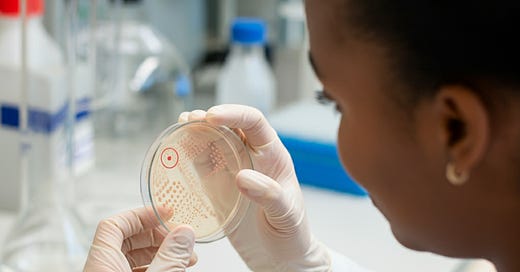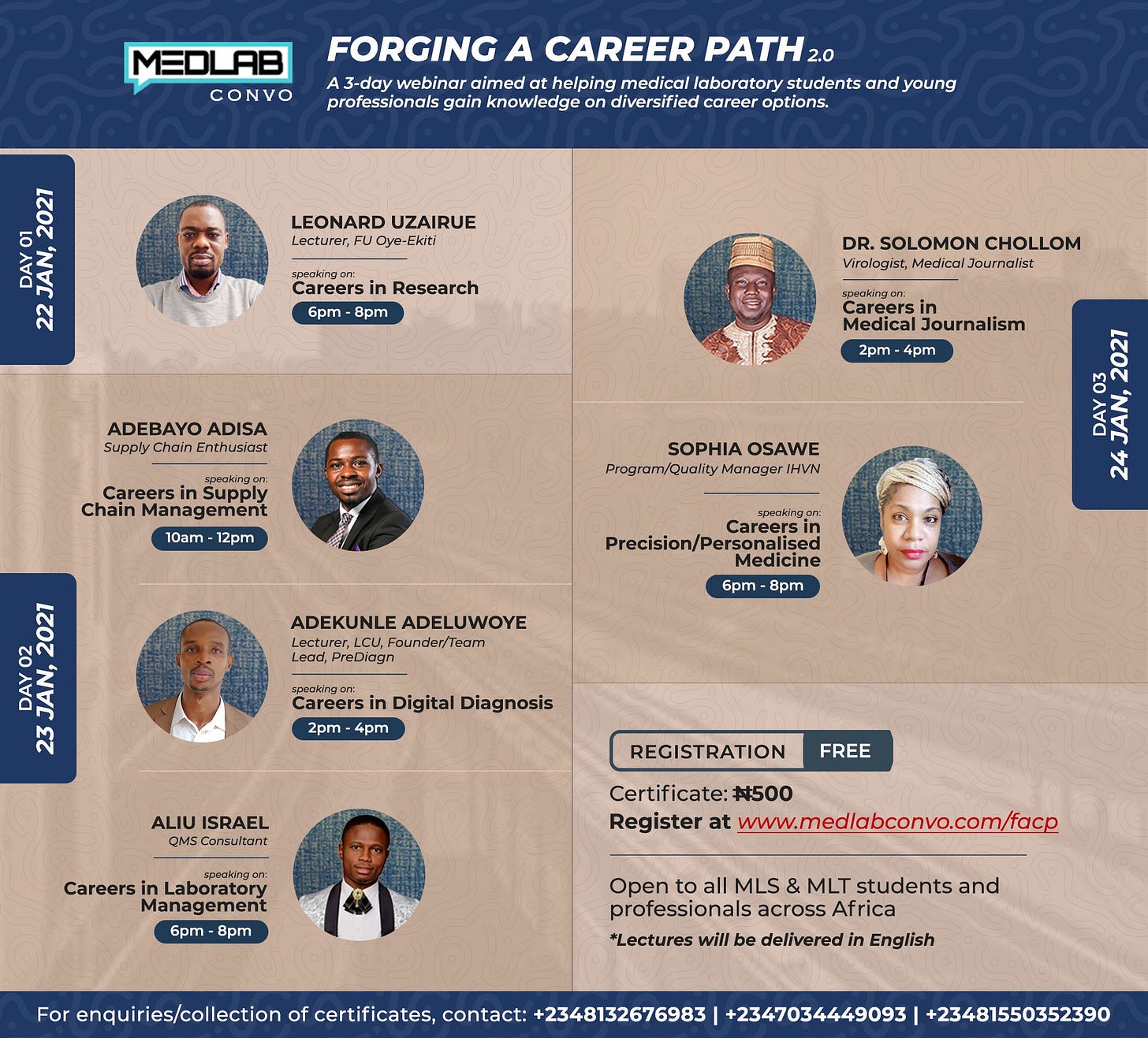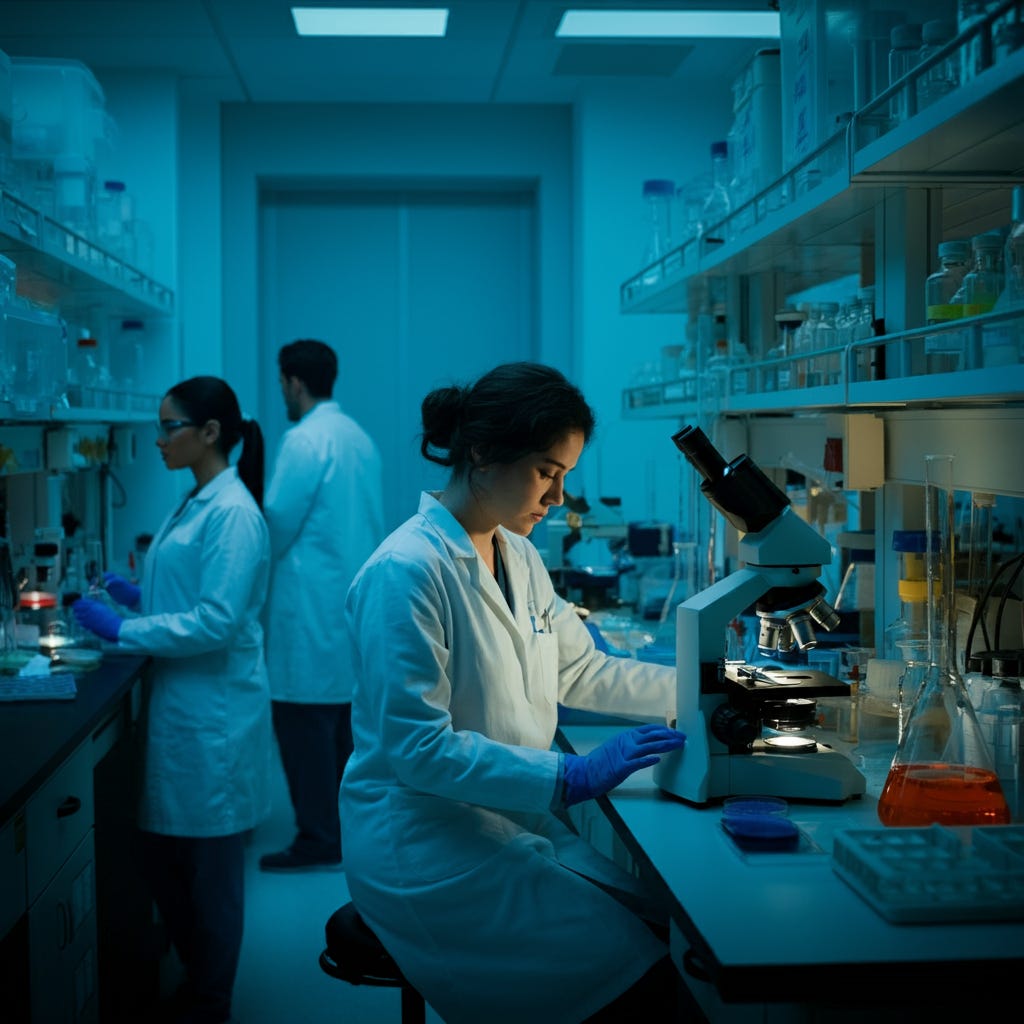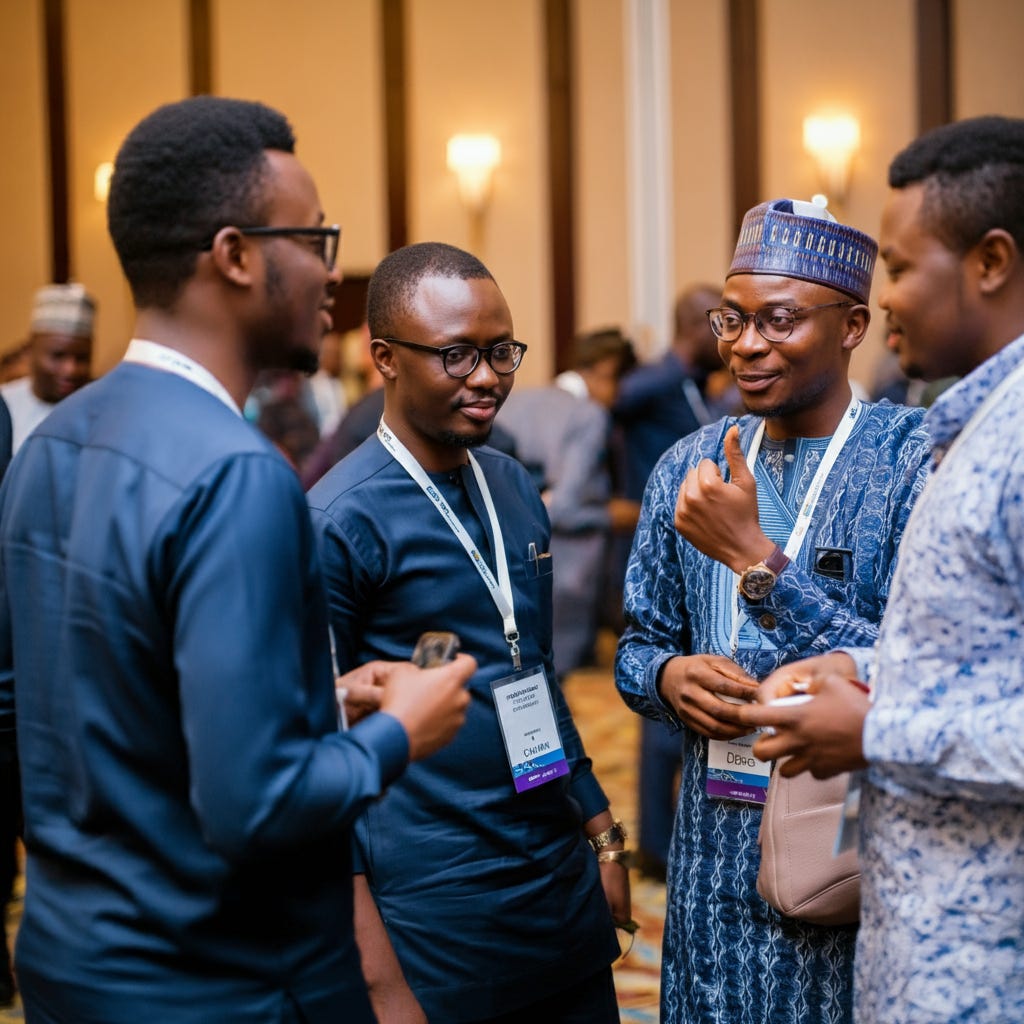From Culture Plates to Culture Shifts: Cultivating Influence as Medical Laboratory Scientists
The Case Study of MedLabConvo
Aim: To consider how influence can be cultivated in Medical Laboratory Science (MLS) professionals, using MedLabConvo as a case study.
Objectives:
To discuss strategies for building influence within the MLS community.
To reflect on how MedLabConvo has contributed to capacity building in MLS.
To highlight key factors that contribute to personal and professional growth within MLS.
Method: Essay
Principle:
Medical Laboratory Science (MLS) professionals are often the unsung heroes of healthcare, working behind the scenes to deliver accurate diagnostics and improve public health outcomes. To become leaders in their own right, however, MLS professionals must look beyond the lab bench and start building influence within the healthcare system.
The Merriam-Webster dictionary defines the word ‘influence’ as "the act or power of producing an effect without apparent exertion of force or direct exercise of command.” It involves the ability to change or affect the actions, behaviours, or opinions of others in a subtle but significant way. The big question is: How can Medical Laboratory Scientists move from being in the background to becoming professionals who actively shape healthcare conversations?
Procedure:
In the medical laboratory world, cultivating influence can be a bit like growing cultures on a petri dish - one needs the right conditions, the proper mechanism and precise supervision of the organisms.
CULTURING INFLUENCE: THE RIGHT CONDITIONS
Mindset
Cultivating or culturing influence starts with the mindset of the individual. Whether you are an MLS student or professional, the way you perceive yourself and your role in the world shapes the impact you can have. It requires the belief that your actions, voice, and ideas matter, combined with a willingness to continuously learn, grow, and connect with others.
As Henry Ford famously said, "Whether you think you can, or you think you can't—you're right.”
Therefore, if you believe in your ability to create change, you have already taken the first step toward cultivating influence. This belief stems from having a positive self-image, developing a growth mindset and understanding the indispensable role of medical laboratory science in healthcare delivery and public health strengthening. If you think you are a second fiddle, simply because you feel you should be in a more ‘superior’ health profession, you are right. Quite frankly, though, try not to remain in that identity crisis-like situation for long. If you are just genuinely confused, reflecting on the evolution of MedLabConvo may provide you some clarity and desire to act.
First edition of MedLabConvo's impactful career series
MedLabConvo, an organization that began as a dream among a few young individuals, has helped many MLS enthusiasts commence a journey to influence. Now, as the organization marks its fifth anniversary in October 2024, it stands out as a hub of knowledge, training, and advocacy for laboratory professionals. What began as a small initiative is growing into a major force for health education and capacity building. Through social media, impactful programs, and its very own podcast unit—LabCast—MedLabConvo is becoming a driving force for health conversations, particularly those relevant to MLS. Prof. Dennis Agbonlahor, an MLS founding father, even noted in one episode that "the errand boys of yesterday have grown to be professionals in their own right," a fitting summary of how the MLS community has evolved. You should too.
A Commitment to Excellence
One of the conditions necessary for cultivating influence in MLS is building a commitment to excellence. MedLabConvo embodies this through its “100% or nothing” culture, which stresses the importance of consistently delivering high-quality work. This commitment to quality naturally builds respect and authority in the professional community. A commitment to excellence eliminates the chances of having multiple blood genotype results- as patients sometimes lament on social media. Beyond delivering accurate results in a lab though, excellence involves being reliable and staying knowledgeable through continuous learning.
Image credit: Image FX
CULTURING INFLUENCE: THE RIGHT MECHANISMS
Having briefly examined two conditions for the petri dish of influence, let's take a look at factors that contribute to cultivating influence.
Personal Development
Personal development is taking strides to become a better version of yourself. It's a lifetime commitment to make yourself better at everything you do. For instance, it's saying you want to improve the quality of work output in the hematology bench by always sticking to time.
Personal development is important because it affects other aspects of your life in the long run. It's acquiring skills that can facilitate personal growth. Skills such as confidence, leadership skills, problem solving skills, time management, emotional management, integrity. Take out time to write out a clear objective of what you want to be known for in the medical field and your personal life: it could be excellence, punctuality, or meticulousness; and who knows you may be the next microbiologist who finds a new strain of bacteria!
Professional Development
After taking out time to fine tune your personal life, the next call of action is professional development. Professional development is accruing skills that sets you different from others in the medical field. While personal development sets your entire life on the right path, professional development focuses on a specific part of your life- which is medical laboratory science as a profession. To gain influence - which doesn't come in a day - you have to develop your professional life.
We have established that professional development is specific, hence, you can gain professional development by taking medical courses online. Thanks to the growing community of learning, we have global health learning where there is a diversity of health courses. Coursera, openWHO, Future Learn are good platforms to learn.
Professional development is just ang taking medical courses. It involves other aspects like: specializing in a field, attending conferences and workshops, taking advanced courses, engaging with professional organizations such as Medlabconvo, and giving yourself up for mentoring and volunteering.
Mentorship
Mentoring is another key aspect of cultivating influence in the medical laboratory space. Mentoring is defined by the National library of medicine as a relationship between a student and a guide or a teacher. Mentoring helps you jump past the failures of your mentor, opens your focal point to a heightened level because you see from a higher person's perspective, and it also puts you in the line of success.
Getting a mentor in the medical field doesn't have to be far fetched, your first mentor might not be the minister of health, but can be the bench scientist on histopathologist bench whose carriage and mental prowess you love. The advantages of having a mentor to cultivate influence cannot be overemphasized as it helps increase your likelihood of success as a scientist, and hence, increases your impact.
Volunteering
Volunteering in the medical laboratory field is another great opportunity to position for influence While you may not be paid, volunteering opens you up to opportunities, skill development, mentorship, access to collaboration and resources. The earnest truth is that volunteering is key to impacting and making an influence in the medical laboratory science space as it gives room for personal branding, giving you the opportunity to build your resume or CV. You can join any medical outreach group in your area or organizations like MedLabConvo, and put your skills to use.
Image credit: Image FX
Networking
Influence is not built in isolation—it is grown through connections, collaborations, and the sharing of knowledge. As such, networking is a key pillar in building influence. By engaging with colleagues, mentors, and even professionals from other healthcare fields, MLS practitioners gain access to diverse perspectives, new ideas, and resources that can help them stay ahead in an ever-evolving field. Networking isn't just about exchanging contact cards or social media handles; it's about building meaningful relationships that lead to partnerships and collaborations. Attending conferences, workshops, seminars, and webinars specific to MLS or related fields is one of the most effective ways to network. Networking at such events also opens doors to collaborations on research projects, policy formulation, and even public health initiatives that require the unique skill set of MLS professionals. Online platforms and professional organizations also offer avenues for ongoing networking. For instance, professionals can engage with peers and thought leaders through MedLabConvo’s social media channels, podcast episodes, and interactive training programs.
Here are some good books on networking and communication that can help you enhance your skills in building professional relationships:
“How to Win Friends and Influence People" by Dale Carnegie
“How to Talk to Anyone” by Leil Lowndes
“The Fine Art of Small Talk" by Debra Fine
“Networking Like a Pro: Turning Contacts Into Connections" by Ivan Misner, David Alexander, and Brian Hilliard
Visibility
The final piece of the puzzle in cultivating influence is visibility. There is a thin line between humility and stunting your growth - be careful not to be on the wrong side of that line. You can build your character silently, but be “loud” about your professional growth. Leverage social media as a medium to establish yourself as an authority or thought leader in your chosen field. Do not worry about the engagements - however low they may be- focus on building a solid, digital footprint. Like one of MedLabConvo’s founding fathers, Odinaka Kingsley Obeta, would say: “Google yourself today!” If you do not exist on search engines or you do not like what you see about yourself, get to work.
Comments:
Unlike lab cultures, the ‘petri dish’ of influence in the medical laboratory science field is not developed overnight. However, with the right focus, consistency, and a few well-calibrated actions, it’s only a matter of time before MLS professionals step into the spotlight as leaders who drive health conversations and policies. Like MedLabConvo, they can begin to strengthen public health by one podcast, one program, one social media post and one conversation at a time.
Recommendations:
Making an impact in the medical field starts from the little you can begin with volunteering, developing yourself, developing your professional life, reading books, and giving yourself up for mentorship. You could volunteer at hospitals or research institutions, laboratory-related events or conferences, mentorship programmes, and community outreach initiatives.









